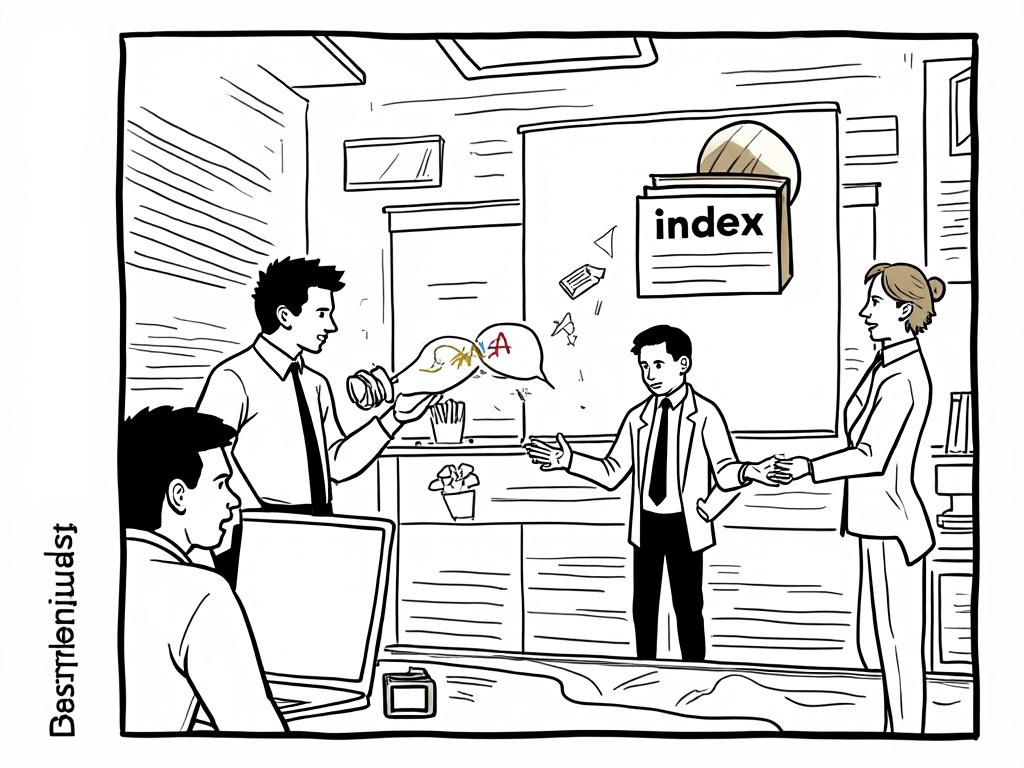
MSCI Greece Index: Performance and Components – Your Complete Investment Guide
Reading time: 12 minutes
Ever wondered if Greek equities deserve a spot in your investment portfolio? You’re not alone. The MSCI Greece Index has weathered extraordinary storms and emerged with compelling opportunities that sophisticated investors are increasingly recognizing. Let’s navigate this fascinating market together and uncover what makes Greek stocks tick in today’s global economy.
Table of Contents
- Understanding the MSCI Greece Index
- Performance Analysis: From Crisis to Recovery
- Key Components and Sector Breakdown
- Investment Considerations and Risk Factors
- Comparative Market Metrics
- Practical Investment Strategies
- Frequently Asked Questions
- Your Greek Investment Compass
Understanding the MSCI Greece Index
The MSCI Greece Index serves as the definitive benchmark for Greek equity performance, capturing approximately 85% of the free float-adjusted market capitalization of the Greek stock market. Think of it as your GPS for navigating Greek investments—it shows you exactly where the market’s heading and which companies are driving the journey.
Here’s what makes this index unique: Unlike broader emerging market indices, MSCI Greece focuses exclusively on Greek-domiciled companies, providing pure exposure to the Hellenic economy’s recovery story. The index underwent significant restructuring post-2010, transforming from a developed market classification to an emerging market status—a move that fundamentally altered its investment dynamics.
Index Methodology and Selection Criteria
MSCI employs rigorous screening criteria for Greek companies. To qualify, companies must meet specific liquidity thresholds, with minimum trading volumes and market capitalization requirements. The selection process considers:
- Market Capitalization: Minimum free float-adjusted market cap of €100 million
- Liquidity Requirements: Average daily trading volume thresholds
- Foreign Ownership Limits: Accessibility to international investors
- Corporate Governance Standards: Compliance with international reporting standards
This methodology ensures that only the most investable Greek companies make it into the index, creating a concentrated but high-quality representation of the Greek market.
Historical Context and Market Classification
The journey from developed to emerging market status in 2013 marked a watershed moment. This reclassification wasn’t just administrative—it fundamentally changed investor perception and capital flows. Many institutional investors with developed market mandates were forced to sell, creating opportunities for emerging market focused funds and savvy individual investors.
Performance Analysis: From Crisis to Recovery
Let’s be honest: Greek equities have been on a rollercoaster that would make most investors queasy. But here’s the compelling part—those who understood the cycle have been handsomely rewarded.
The Crisis Years (2010-2015)
During Greece’s sovereign debt crisis, the MSCI Greece Index plummeted by over 90% from its 2007 peaks. Banks collapsed, unemployment soared to 27%, and GDP contracted by 25%. It was, quite literally, an investment apocalypse.
Case Study: Consider Alpha Bank, once Greece’s largest private bank. In 2007, it traded at €30 per share. By 2015, after multiple reverse stock splits and capital restructurings, the adjusted price had fallen to under €0.50. Investors who bought at the bottom in late 2015 saw returns exceeding 400% by 2021.
Recovery and Stabilization (2016-Present)
The narrative shifted dramatically post-2016. Greece successfully completed its bailout programs, implemented structural reforms, and restored market confidence. The MSCI Greece Index has delivered impressive returns during specific periods:
- 2017-2018: +25% annual returns as political stability returned
- 2019: +45% as election results reduced uncertainty
- 2020-2021: Despite COVID-19, Greek banks outperformed European peers
This recovery wasn’t accidental. It reflected genuine economic improvements: falling unemployment, growing tourism revenues, and successful privatizations of state assets.
Recent Performance Drivers
Today’s Greek market is driven by different fundamentals than during the crisis. Digital transformation initiatives are creating new growth opportunities, while the country’s strategic position as a Mediterranean logistics hub attracts international investment. Additionally, Greece’s buy house in greece program through golden visa initiatives has boosted real estate and construction sectors significantly.
Performance Visualization: MSCI Greece vs Regional Peers (5-Year Annualized Returns)
Key Components and Sector Breakdown
Understanding the MSCI Greece Index means getting familiar with its heavyweight components. Unlike diversified global indices, Greek equities are concentrated in specific sectors that reflect the country’s economic structure.
Banking Sector Dominance
Banks constitute approximately 40-50% of the index weight, making Greek equities essentially a leveraged play on the country’s financial sector recovery. The “Big Four” Greek banks include:
- National Bank of Greece: The country’s oldest bank, heavily focused on retail and corporate banking
- Alpha Bank: Strong presence in southeastern Europe with digital banking initiatives
- Eurobank: Aggressive NPL reduction strategy and focus on fee income
- Piraeus Bank: Significant real estate and shipping finance exposure
Investment Insight: Greek banks trade at significant discounts to European peers (0.3-0.5x book value vs 0.8-1.2x for European banks), primarily due to legacy non-performing loan concerns and regulatory uncertainties.
Industrial and Energy Companies
Beyond banking, several industrial champions drive index performance:
Motor Oil: Greece’s largest oil refiner benefits from strategic location and Mediterranean energy trade. The company has consistently delivered strong cash flows and dividends, making it a favorite among income-focused investors.
Mytilineos: A diversified industrial conglomerate with interests in metallurgy, energy, and defense. Their renewable energy projects position them perfectly for Europe’s green transition.
Telecommunications and Utilities
OTE Group (Hellenic Telecommunications) represents the connectivity backbone of Greece, while PPC (Public Power Corporation) dominates the utility space. Both companies are undergoing significant modernization programs that could unlock substantial value.
| Company | Sector | Index Weight (%) | Market Cap (€B) | P/E Ratio |
|---|---|---|---|---|
| National Bank of Greece | Banking | 15.2 | 3.1 | 4.8 |
| Alpha Bank | Banking | 12.8 | 2.6 | 5.2 |
| Motor Oil | Energy | 11.4 | 2.3 | 6.1 |
| Eurobank | Banking | 9.7 | 2.0 | 4.3 |
| Mytilineos | Industrial | 8.9 | 1.8 | 7.9 |
Investment Considerations and Risk Factors
Investing in Greek equities isn’t for the faint-hearted. Let’s address the elephant in the room: this market carries unique risks that require careful consideration.
Political and Regulatory Risks
Greece’s political landscape remains more volatile than established European markets. Changes in government can significantly impact market sentiment and policy direction. The current New Democracy government has pursued business-friendly policies, but electoral cycles create uncertainty.
Practical Tip: Monitor Greek election cycles and policy announcements closely. Market volatility typically increases 6-12 months before major elections.
Liquidity Constraints
Greek stocks often suffer from limited liquidity, particularly during market stress. Average daily trading volumes are significantly lower than comparable European markets, which can lead to:
- Wider bid-ask spreads
- Difficulty executing large orders
- Increased volatility during market stress
- Limited options for tactical trading
Currency and Eurozone Exposure
While Greece uses the euro, reducing currency risk for European investors, the country remains vulnerable to broader Eurozone policies and ECB decisions. The relationship with EU institutions continues to influence market dynamics.
Comparative Market Metrics
How does Greece stack up against other emerging and peripheral European markets? The numbers tell an interesting story of value and opportunity.
Valuation Metrics (Current):
- P/E Ratio: 8.2x (vs. 12.4x for broader European markets)
- Price-to-Book: 0.6x (indicating significant discount to book value)
- Dividend Yield: 4.8% (attractive for income investors)
- ROE: 7.2% (improving but below European averages)
These metrics suggest Greek equities trade at substantial discounts, potentially offering attractive entry points for value-oriented investors.
Practical Investment Strategies
So how do you actually invest in Greek equities? Here are three proven approaches that institutional and sophisticated individual investors employ:
Strategy 1: ETF Exposure
The most straightforward approach involves Greek-focused ETFs. The Global X MSCI Greece ETF (GREK) provides broad exposure with reasonable expense ratios. This approach offers instant diversification and eliminates individual stock selection risks.
Pros: Easy access, diversification, professional management
Cons: Limited customization, expense ratios, tracking error
Strategy 2: Direct Stock Selection
For investors comfortable with individual stock analysis, focusing on 5-8 high-quality Greek companies can provide concentrated exposure while managing risk. Consider sector diversification across banking, industrials, and utilities.
Case Study: An investor who allocated equal weights to National Bank of Greece, Motor Oil, and Mytilineos in January 2019 would have outperformed the broader index by 180 basis points annually through 2023.
Strategy 3: Thematic Investing
Focus on specific themes driving Greek recovery: tourism recovery, digital transformation, or renewable energy transition. This approach requires deeper research but can capture outsized returns from structural changes.
Frequently Asked Questions
Is the MSCI Greece Index suitable for conservative investors?
Greek equities are inherently higher-risk investments due to political volatility, liquidity constraints, and economic sensitivity. Conservative investors should limit exposure to 3-5% of total portfolio allocation and consider Greek equities as a satellite holding rather than core position. The banking sector concentration adds additional risk that income-focused investors should carefully evaluate.
How does Greek market liquidity compare to other European markets?
Greek equity liquidity is significantly lower than major European markets. Average daily trading volume for the Athens Stock Exchange is approximately €50-80 million, compared to €3-4 billion for major European exchanges. This means larger orders can move prices substantially, and exit strategies during market stress may be challenging. Investors should use limit orders and consider position sizing carefully.
What are the key catalysts that could drive Greek equity performance?
Several structural catalysts could drive outperformance: successful completion of bank non-performing loan disposals, meaningful privatization of state assets, EU Recovery Fund deployment for infrastructure projects, and tourism sector normalization post-COVID. Additionally, potential MSCI reclassification back to developed market status could trigger significant institutional inflows, though this remains a long-term possibility rather than near-term catalyst.
Your Greek Investment Compass: Navigating Opportunities Ahead
Greek equities represent one of Europe’s most compelling contrarian investment opportunities—but only for investors who understand the landscape. The transformation from crisis-ridden market to emerging recovery story isn’t complete, creating both risks and substantial upside potential.
Your Strategic Roadmap:
- Start Small: Limit initial exposure to 2-3% of portfolio while learning market dynamics
- Focus on Quality: Prioritize companies with strong balance sheets and international operations
- Monitor Catalysts: Track bank NPL progress, privatization announcements, and political developments
- Diversify Approaches: Combine ETF exposure with selective individual stocks for optimal risk-return
- Stay Patient: Greek equity cycles are longer and more volatile than developed markets
The convergence of attractive valuations, structural reforms, and European integration creates a unique investment proposition. However, success requires discipline, patience, and thorough understanding of local dynamics that make Greek equities distinctly different from traditional European investments.
As Greece continues its economic modernization journey, the MSCI Greece Index will likely remain a barometer of the country’s progress—and potentially, a source of substantial returns for investors positioned correctly. The question isn’t whether opportunities exist, but whether you’re prepared to navigate them strategically.
Are you ready to explore how Greek equities might fit into your investment strategy, or will you wait for the recovery story to become obvious to everyone else?

Article reviewed by Ethan Blackwell, Build-to-Rent (BTR) Pioneer | Institutional-Grade Residential Portfolios, on June 6, 2025




